Case Study: Adroit Sensor Installations at the Mental Health Facility, Waiora Waikato Hospital
Naylor Love, one of New Zealand’s largest construction firms, is building the new Adult Acute Mental Health Inpatient Facility at Waiora Waikato Hospital.
To ensure minimal disruption to the hospital’s sensitive equipment and maintain a safe working environment, Adroit has installed a comprehensive sensor system to monitor noise, dust, and vibration, crucial for maintaining the functionality and safety of the hospital’s existing infrastructure and sensitive equipment.
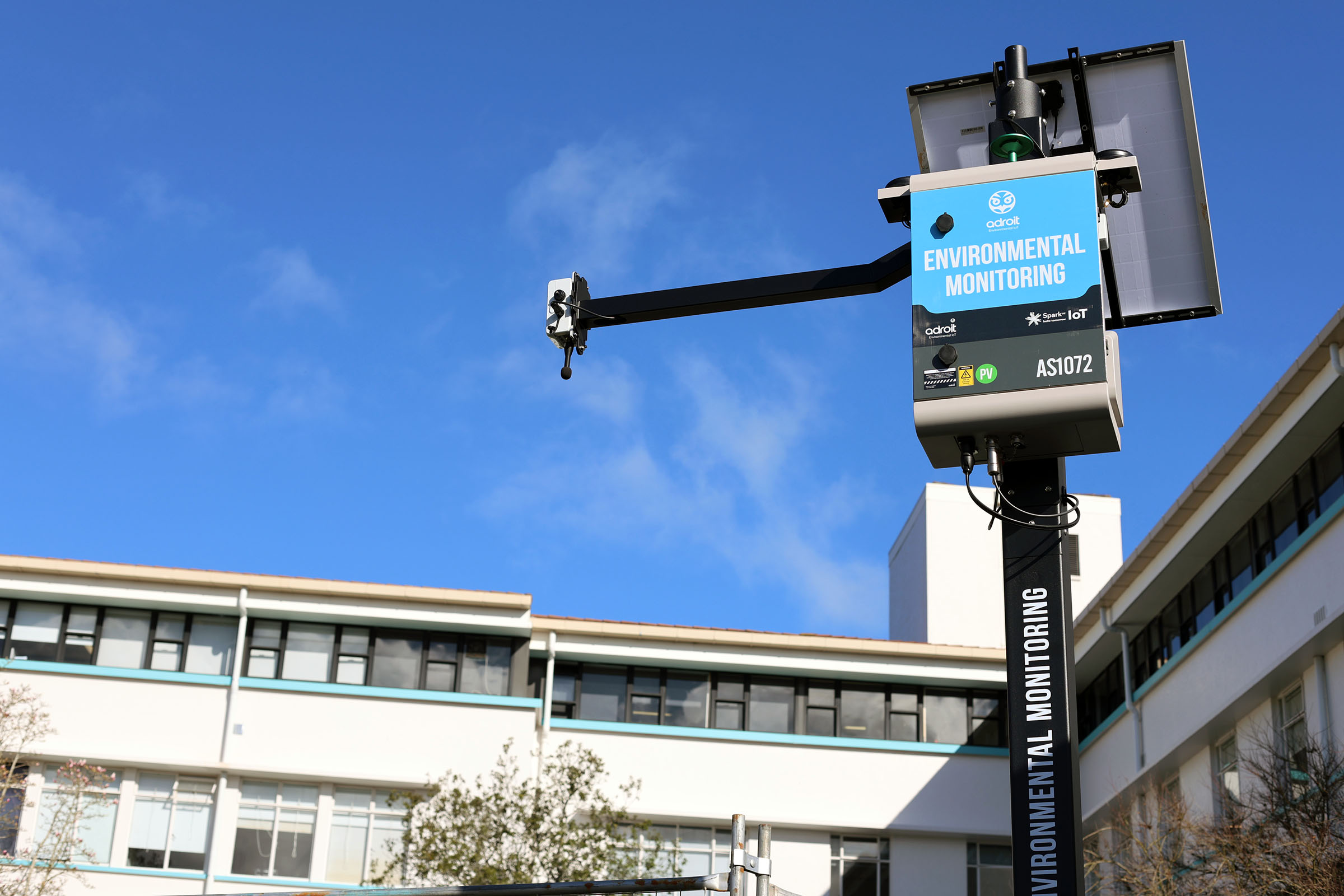
Project Overview
The construction site at Waiora Waikato Hospital is a live campus, meaning the hospital’s services, including patient care, treatment, research and infrastructure, are all operational near the project site. This necessitates careful management of potential disruptions resulting from the construction program.
The Adroit system was designed to assist Naylor Love in proactive engagement with stakeholders, keeping them informed about potential disruptions and mitigation measures.
Adroit installed sensors on modular poles to monitor various environmental factors:
- Noise: monitor, record and manage noise levels at critical locations around the site.
- Dust: ensure particulate matter levels are maintained at safe levels during worksite activity, especially near a live hospital environment.
- Vibration: A construction vibration sensor was placed adjacent to the most active construction area to monitor the impact on sensitive hospital equipment, such as MRI machines.
- Weather Station: To monitor wind and rain, aiding in contractual reporting and operational decisions, especially regarding crane operations and potential weather delays.
All sensors utilise cellular connections on the CAT M1 network for reliable data transmission.
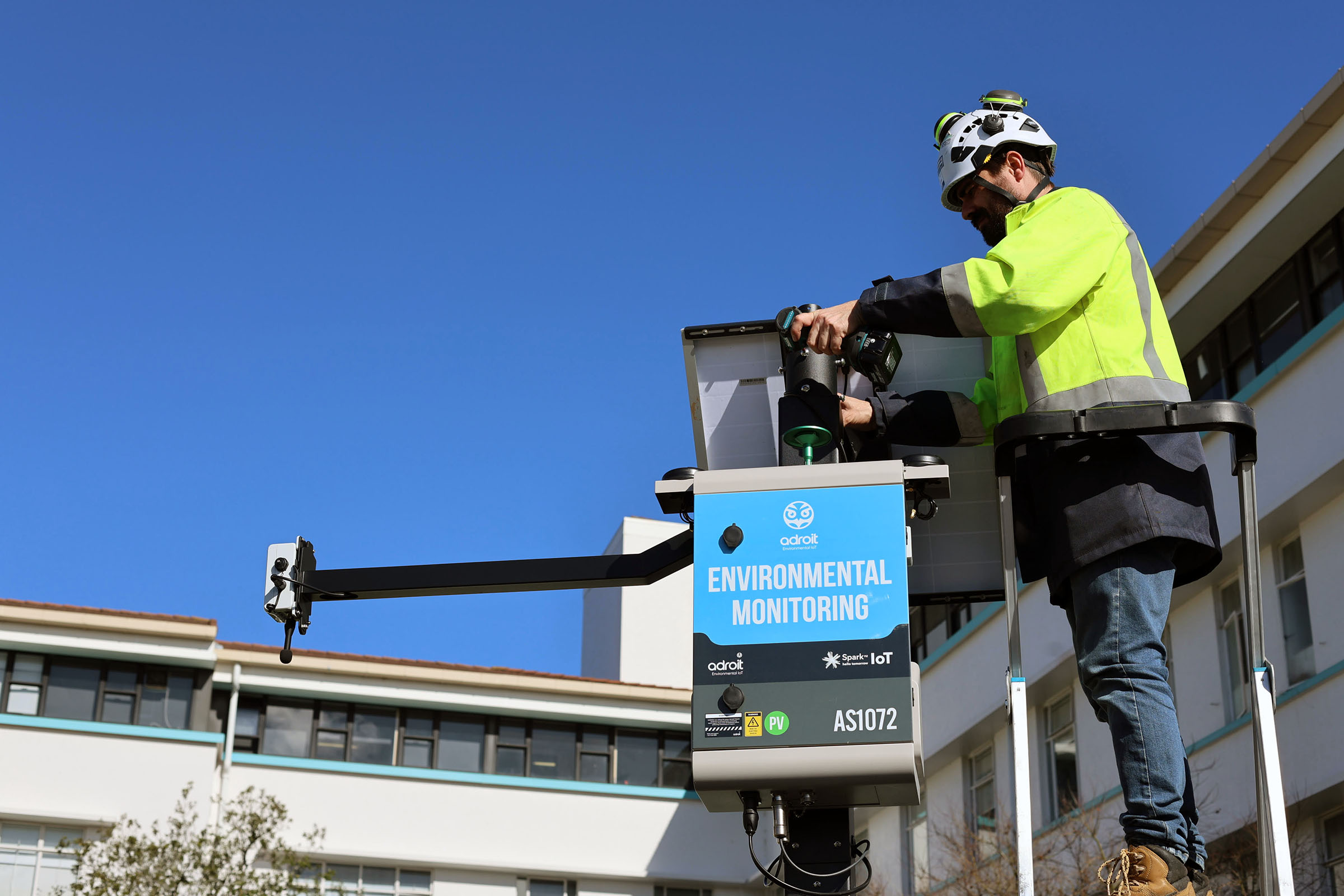
Addressing Stakeholder Concerns
Given the client is a hospital with many different departments and types of equipment, Naylor Love needed tools to help demonstrate the potential impact of construction work to an unusually large group of stakeholders. A key concern was the potential impact of sheet piling on sensitive equipment, such as MRI machines, as vibrations could potentially disrupt operations, leading to costly recalibrations and downtime.
Naylor Love approached Adroit for a solution based on recommendations from one of their other teams. The brief called for key features including constant access to real-time data, high data accuracy, a cost-effective package, and rapid deployment capability.
The Adroit system allows Naylor Love to reassure stakeholders by setting baselines for effect operation and demonstrating actual sound and vibration levels versus perceived levels.
Implementation and Management
The project included a trial run of the sheet piling process with all Adroit sensors in place, allowing the team to establish a baseline and reassure stakeholders that the construction activities would not significantly impact hospital operations. A sheet pile installed during the trial was considered to be the worst-case example for the piling work, so both Naylor Love and hospital stakeholders could understand the noise and vibration levels involved, with later piling activity expected to be less disruptive than that baseline.
Naylor Love used the data from Adroit’s sensors to provide stakeholders with a baseline report and can react with real-time updates as requested thereafter.
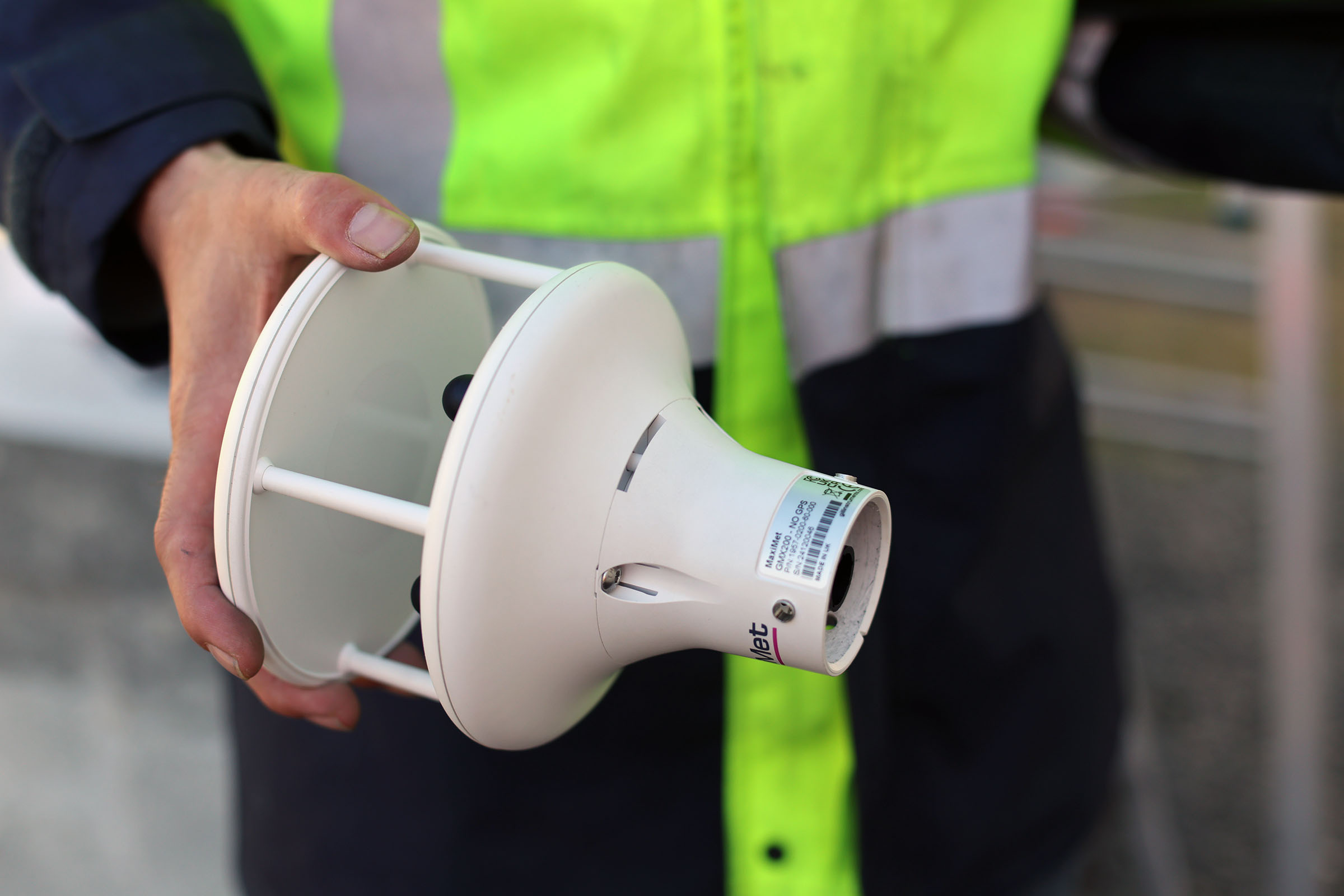
Health and Safety
The sensor system also supports Naylor Love’s health and safety protocols.
Dust Monitoring is in place to enable timely interventions, such as deploying water trucks to manage dust levels as required.
Noise Monitoring provides data to address concerns about noise levels by both stakeholders and the public, helping to differentiate between perceived and actual noise on site.
The Adroit system also integrates with the Timescapes worksite monitoring system, which includes cameras for visual monitoring of the worksite. This integration allows for comprehensive tracking of environmental conditions and correlating them with specific construction activities. It further enhances stakeholder communication and issue resolution by providing visual evidence alongside sensor data.
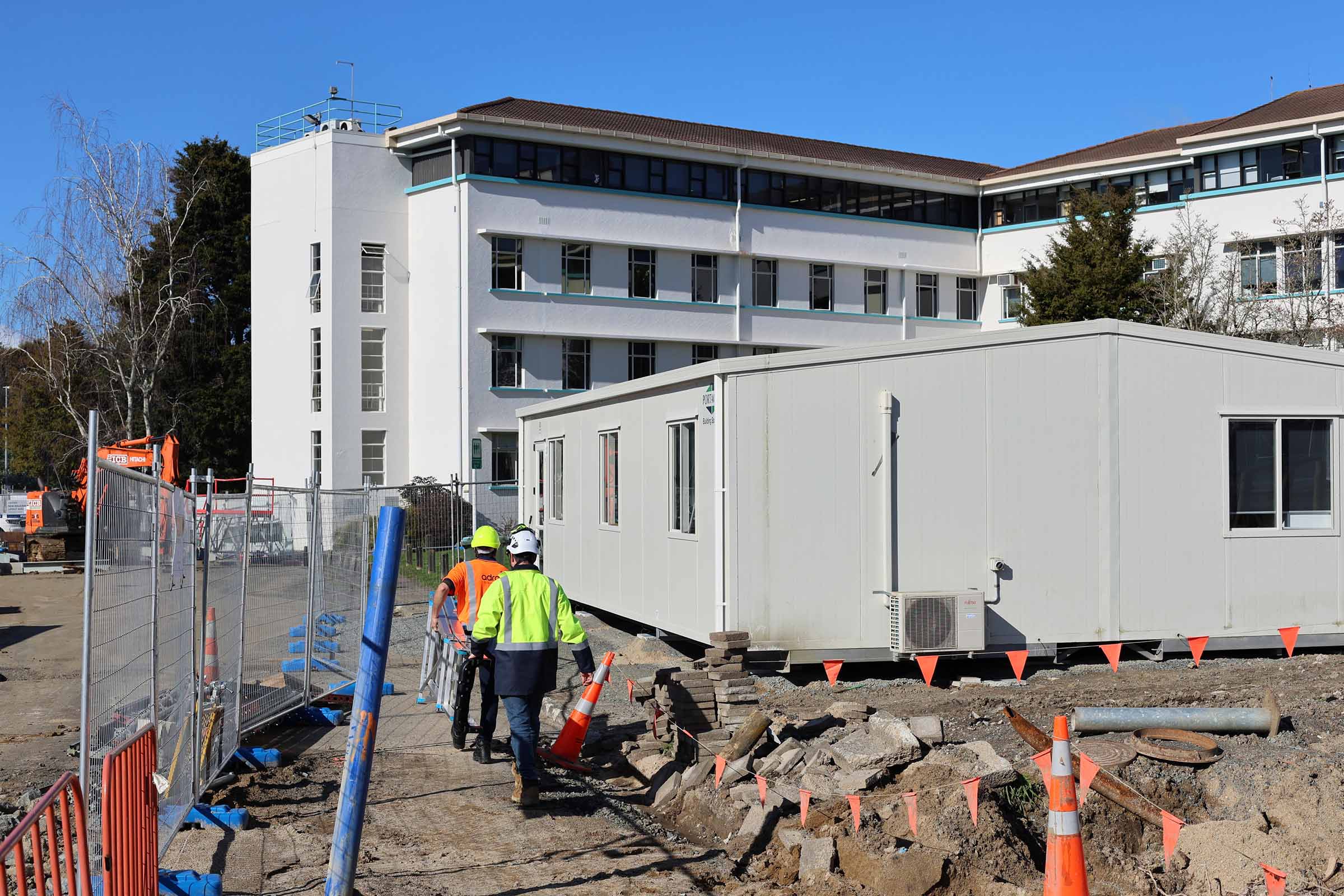
Installation Process
Adroit’s team collaborated effectively with Naylor Love, ensuring timely and efficient setup of the sensor system – including logistical challenges, such as worksite and hospital induction requirements. Naylor Love feedback was that the Adroit team was incredibly responsive, exceeding expectations in terms of putting the proposals together, taking the time to understand what was needed, getting all the equipment together in a timely manner and then liaising with the onsite team for the installation. “So it was really, really good.”
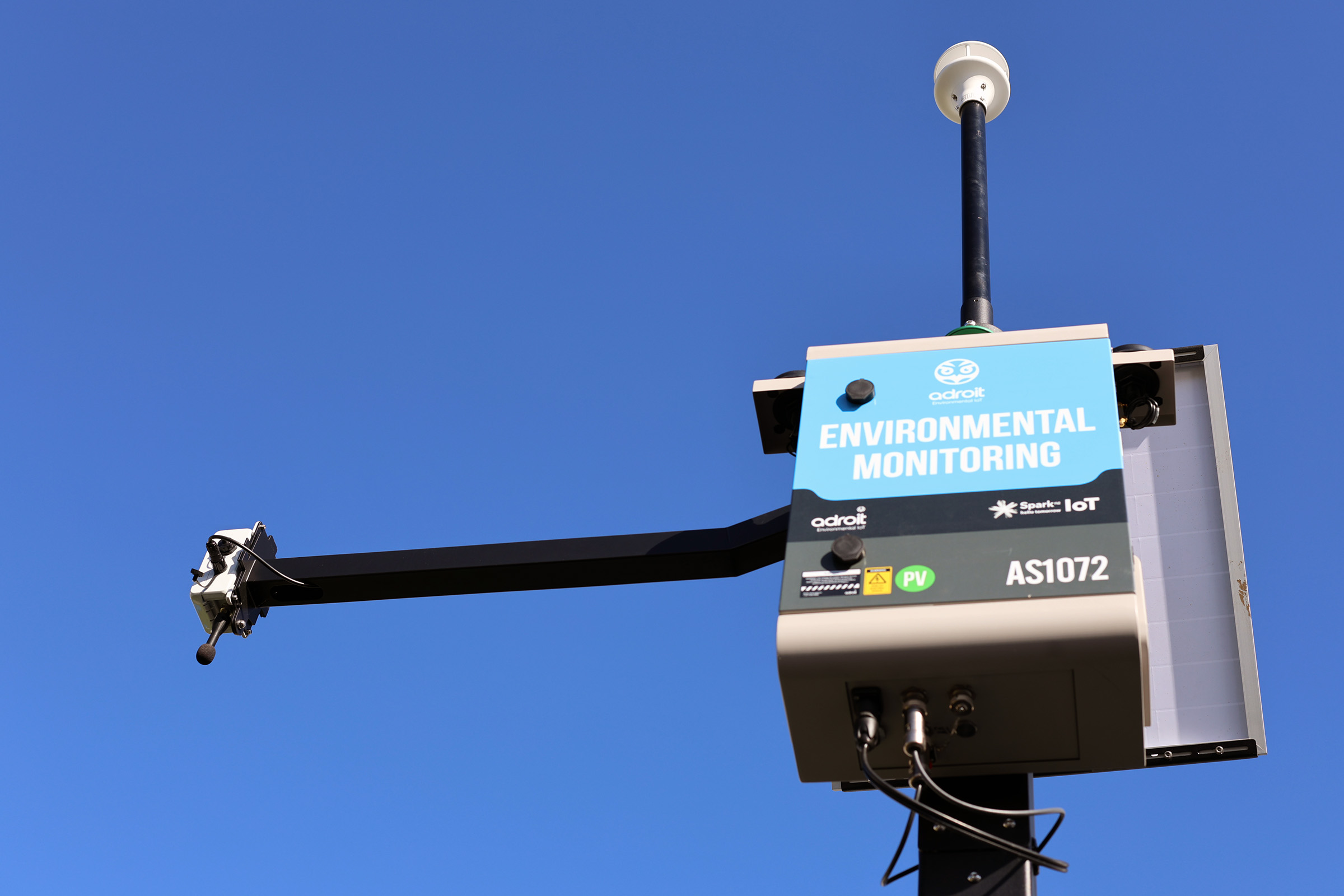
Continuous Improvement and Future Applications
The success of the sensor system at Waiora Waikato Hospital has set a precedent for future Naylor Love projects. The Adroit sensor package is able to be reused, so Naylor Love intends to utilise this system in subsequent phases of the project and on other construction sites. The Naylor Love team believes that the ability to monitor environmental conditions in real-time not only plays a role in risk mitigation for the company, it adds a layer of professionalism to the way the firm interacts with stakeholders, partners and the public – enhancing Naylor Love’s reputation for responsible and client-focused project management. This project demonstrates the critical role of Environmental Intelligence in modern construction management by addressing stakeholder concerns, enhancing health and safety measures, and ensuring minimal disruption to hospital operations.
